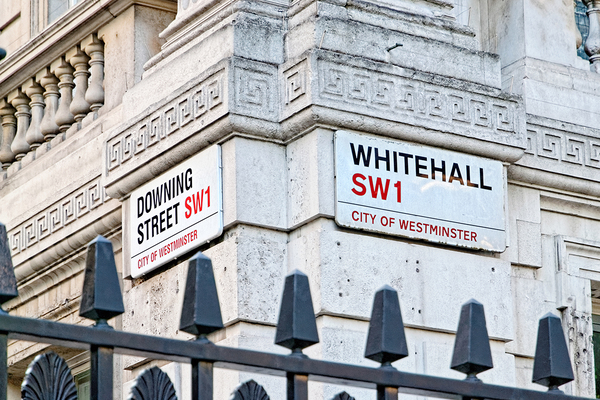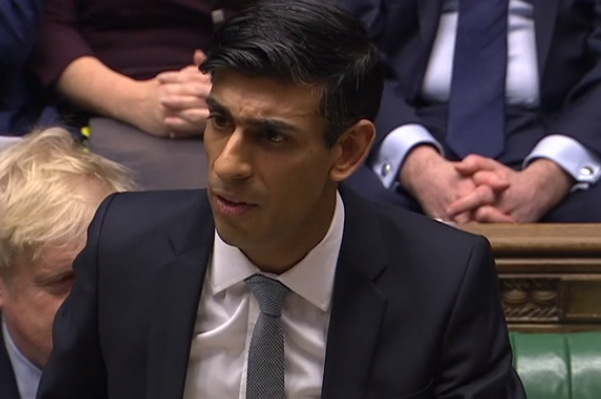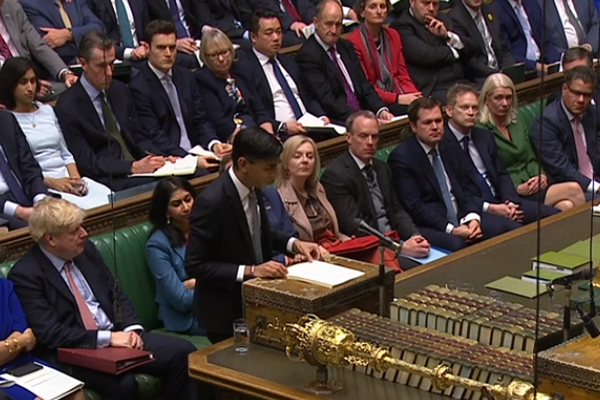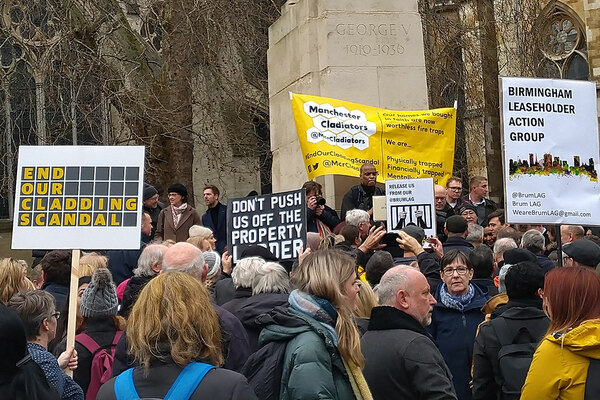You are viewing 1 of your 1 free articles
 Jules Birch
Jules BirchBudget 2020: an improvement on recent years but questions remain
Jules Birch gives his verdict on the first post-Brexit Budget
This is a Budget that does not live up to its own hype and has some glaring omissions, but it still brings some good news for housing.
There are three big positives: a £12.2bn Affordable Homes Programme over the five years from 2021/22; an additional £1bn for a Building Safety Fund to remove dangerous cladding; and £650m to help rough sleepers into permanent accommodation.
Add the reversal of an interest rate hike for borrowing for new council homes, extra funding for housing infrastructure, £1.2bn in consequentials that other UK nations can invest into new homes, and an extension of Shared Accommodation Rate exemptions to young rough sleepers and other vulnerable groups – this looks like one of the best Budgets for housing in the past 10 years.
However, that’s not setting the bar especially high, and you don’t have to look very far below the surface before the questions start to mount up.
The Affordable Homes Programme, for example, looks like a £3bn, or 33% increase, on a 2016/21 programme worth £8.9bn.
“You don’t have to look very far below the surface before the questions start to mount up”
However, where pre-Budget rhetoric had boasted of the biggest increase in investment in a decade, the chancellor was more modest in his speech as he hailed “the largest cash investment in affordable housing in a decade”.
And for good reason. That form of words concedes that housing investment will still be lower than the Conservative-led government inherited from Labour in 2010.
What was then called the National Affordable Housing Programme was worth £8.9 bn but over the three years from 2008/11, which works out to £2.97bn a year.
That compares with £12.2 bn over five years, or £2.44bn a year. Even before allowing for inflation, that is £500m a year less per year than a decade ago.
Then there’s the whole question of the meaning of ‘affordable’.
A pre-Budget letter signed by 28 backbench Conservative MPs argued for “building up our nation’s offer of social homes” and argued that “if our policies simply continue to provide only unaffordable housing, then the people will never forgive us”.
We will have to wait for the Spending Review in the autumn for the detail of the new programme but the Budget red book hints at priorities when it says the programme “will help more people into homeownership and help those most at risk of homelessness”.
On housing in general, a big announcement on planning is due tomorrow, with the red book promising “comprehensive reforms to bring the planning system into the 21st century” and “firm consequences” for local planning authorities that fail to meet their local housing need.
The £1bn Building Safety Fund is explained in more detail on the Ministry of Housing Communities and Local Government website.
It extends government help to dangerous cladding that is not made of aluminium composite material and mentions high-pressure laminate and wood in particular – and it applies to social and private sector buildings.
In the private sector, “grants will be for the benefit of leasehold owners” with building owners expected to honour commitments they have already made and to recoup the government for any successful warranty claims.
“The Building Safety Fund will not be remotely enough in itself to fix a cladding and fire safety crisis with costs that housing associations alone say could ‘easily exceed’ £10bn”
However, the fund will only apply to buildings of 18m or over, leaving owners and leaseholders of mid-rise blocks in limbo.
Confirmation that the fund is for 2020/21 appears to allay fears that it might come out of the future Affordable Homes Programme.
But it will not be remotely enough in itself to fix a cladding and fire safety crisis with costs that housing associations alone say could “easily exceed” £10bn and that has left at least 600,000 leaseholders with unsaleable flats.
On rough sleeping, chancellor Rishi Sunak said he is “confirming nearly £650m of funding” but that appears to consist of £237m already announced by the prime minister, plus a further £144m for associated support services and £262m for substance misuse treatment services.
And the Budget had nothing to say on the one of the main causes of homelessness and rough sleeping – Local Housing Allowance rates that do not cover private rents – and the funding gap in the system that is meant to reduce it.
The cut in the interest rates for Housing Revenue Account borrowing from the Public Works Loan Board is a welcome move that should mean more council homes – but it only reverses a hike introduced to widespread consternation last year.
The Budget seemed to have nothing to say about the decarbonisation of existing housing, despite its emphasis on climate action ahead of the 2020 United Nations Climate Change Conference (also known as COP26).
While Mr Sunak took the opportunity provided by Brexit to eliminate VAT on tampons and electronic books, he did not choose to do the same for energy efficiency and decarbonisation works.
More answers on all of the above will come in the Spending Review and another Budget due in the autumn.
Until then, the questions will keep mounting up, but the first Budget of the 2020s is still a big improvement on the 2010s.
Jules Birch, award-winning blogger
More on the Budget 2020
Inside Housing is bringing you up-to-date news, analysis and comment from the first post-Brexit Budget.
Here are the details of all our coverage so far:
Shared ownership Right to Buy likely to be applied to all rented homes funded under £12bn programme The government is looking at allowing tenants renting homes built through the new Affordable Homes Programme the right to shared ownership of their homes
Fire safety costs ‘could still hit development pipelines’ despite £1bn fund Concerns remain in sector despite cladding removal fund
Budget 2020: an improvement on recent years but questions remain Jules Birch gives his verdict on the first post-Brexit Budget
Housing figures react to ‘positive’ Budget announcements for sector Reaction from key sector figures to the measures unveiled
The housing bits of Sunak’s speech in full Read the key passages from the chancellor’s speech to the House of Commons
PWLB rates for social housing cut to pre-hike levels The cost for councils of borrowing to fund social housing will fall
Budget 2020: the key housing measures at a glance An at-a-glance guide to the key Budget announcements for the sector
Chancellor announces additional £12bn for Affordable Homes Programme Rishi Sunak announces the largest affordable grant programme in years
£650m fund to tackle rough sleeping The chancellor promises to fund 6,000 new places for rough sleepers to live
£1bn Building Safety Fund to remove ‘all forms’ of cladding The government pledges money to make all buildings safer
Housing secretary to announce planning reforms Ministers will set plans to reform the planning system on Thursday
Pre-Budget:
What should the housing sector look out for in today’s Budget? Peter Apps runs through the issues the sector should be looking out for
The housing sector is right to feel anxious about tomorrow’s Budget The government has indicated that its main focus with regard to housing policy is homeownership. The sector should be nervous about what this means for its spending priorities, writes John Perry
What the sector wants from the chancellor James Wilmore sifts through the submissions from the sector’s biggest players to find out what they want from the Budget later today
Conservative MPs urge chancellor to use Budget to build more social housing A group of 27 Conservative MPs and the mayor of the West Midlands have written to chancellor Rishi Sunak ahead of the Budget statement to urge him to allocate more money to building social housing.
How this Budget will signal the government’s direction of travel on housing With the first post-Brexit Budget due, Kate Henderson assesses the issues on which the sector has been lobbying
Budget 2020: housing measures at a glance
- A new Affordable Homes Programme of £12bn
- A £1bn Building Safety Fund to remove unsafe cladding from buildings
- £650m of funding to help rough sleepers into permanent accommodation
- £400m for ambitious regional mayors to build homes on brownfield sites
- Promise to announce measures to change the planning system tomorrow
- A 1% cut on the Public Works Loan Board interest rate, used by local authorities to fund housebuilding
- A temporary removal of the minimum income floor (which calculates assumed earnings for self-employed people) in Universal Credit as part of the government’s response to coronavirus
- £200m for communities in areas that repeatedly flood












